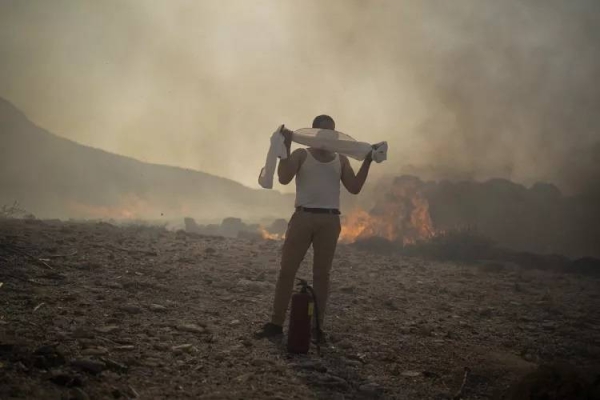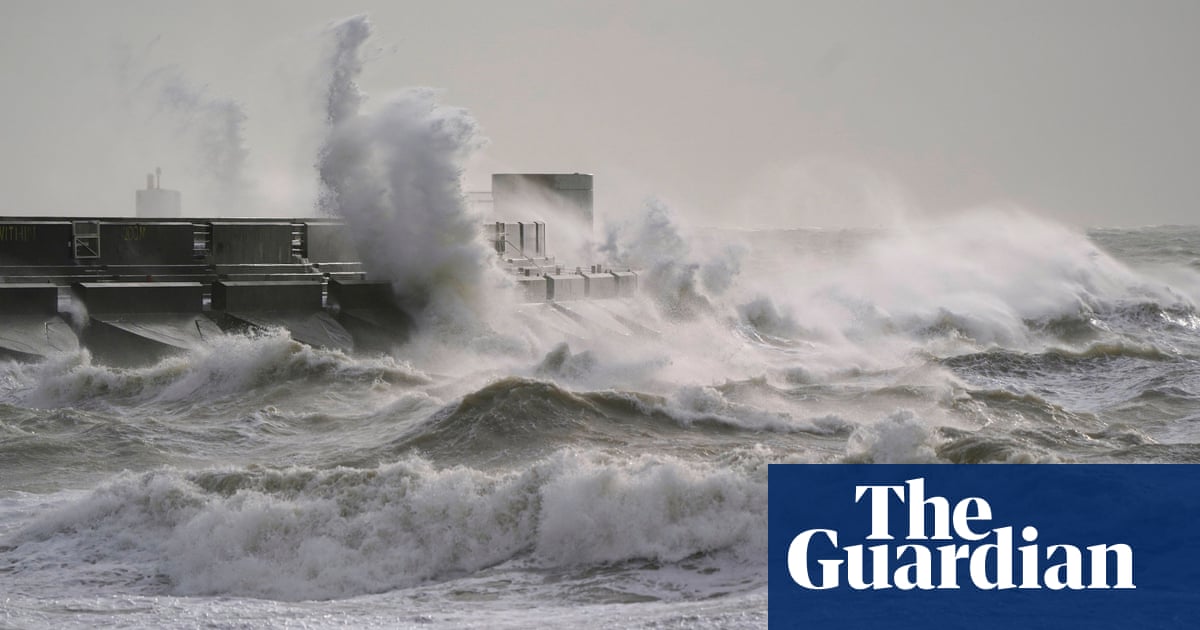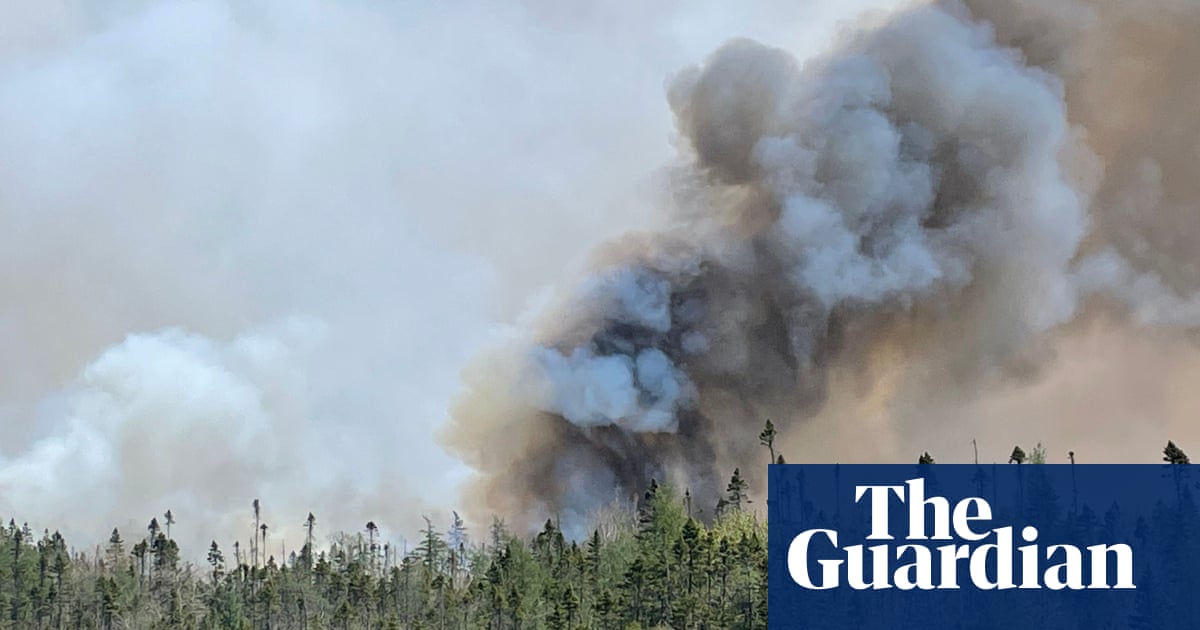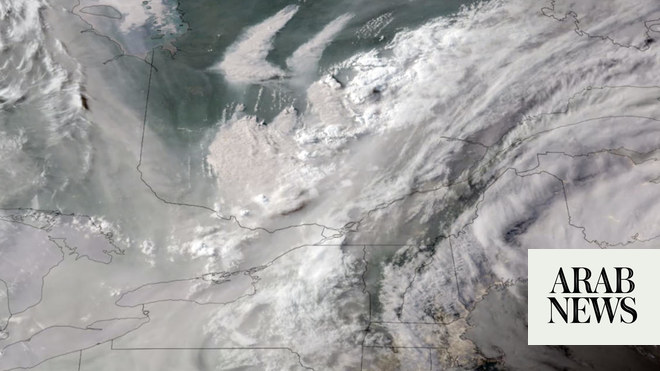
A week-old wildfire on the Greek resort island of Rhodes tore past defenses Monday, forcing more evacuations as strong winds and successive heat waves that left scrubland and forests tinder-dry fueled three major fires raging elsewhere in Greece.
The latest evacuations were ordered in south Rhodes after 19,000 people, mostly tourists, were moved in buses and boats over the weekend out of the path of the fire that reached several coastal areas from nearby mountains. It was the country"s biggest evacuation effort in recent years.
“We are at war - completely focused on the fires,” Prime Minister Kyriakos Mitsotakis said during a debate in parliament. “Over the coming days and weeks, we must remain on constant alert.”
Help continued to arrive from the European Union and elsewhere, with firefighting planes from neighbouring Turkey joining the effort on Rhodes, where 10 water-dropping planes and 10 helicopters buzzed over flames up to five metres tall despite low visibility.
Temperatures reached the low 40s Celsius in parts of the Greek mainland Monday, a day after soaring as high as 45 degrees.
Evacuations were also ordered overnight on the western island of Corfu, where more than 2,000 people were moved to safety by land and sea, as well as on the island of Evia and in a mountainous area in the southern Peloponnese region.
Firefighters tackled blazes that erupted in peak tourism season, sparking the country"s largest-ever wildfire evacuation -- and leaving flights and holidays cancelled. Tens of thousands of people have already fled blazes on the island of Rhodes, with many frightened tourists scrambling to get home on evacuation flights.
Seasonal workers lying on beach towels, vacationers in bathing suits slumped on chairs: Rhodes airport was like an improvised camp on Monday due to the fire that is ravaging part of this very touristic Greek island.
In the departures hall of the international airport, many holidaymakers, waiting for a flight to return to their country, share the stories of their "evacuation in nightmarish conditions" from the hotels and holiday residences where they were staying at the edge of the Aegean Sea.
Among them, Daniel-Cladin Schimdt, a 42-year-old German tourist, who came on vacation with his wife and their nine-year-old son to the coast of Kiotari, the southeastern region of the island.
"We are exhausted and traumatized," he told AFP. "I don"t think we really realise what happened." After the hotel alarm sounded on Saturday, "we were evacuated to the beach," he recalls.
"There were thousands of people, the buses couldn"t pass, we had to walk for more than two hours (...) We couldn"t breathe, we covered our faces to move forward. It"s a miracle," he says, overcome by emotion.
Facing the coasts of Turkey, Rhodes, which had 2.5 million visitor arrivals in 2022, is one of the main resort destinations in Greece, with numerous hotels all along its eastern shores.
During the course of Saturday and Sunday, some 30,000 people were evacuated as a precaution against the advance of the flames, the largest evacuation operation ever carried out in Greece, according to firefighters.
On Monday as the fire raged for the seventh day in a row, other residential areas had to be evacuated, such as Asklipio where the village bells started ringing to mark the evacuation order.
"Suddenly, we saw the fire just outside" the village, testified Giorgos Latos, an 83-year-old pensioner, who was drinking his morning coffee at the time. — Euronews












